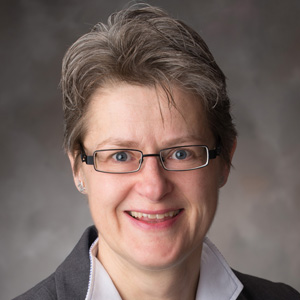
Current Research
Most of my research is quantitative and frequently involves comparative-international and comparative-historical data. Currently, I am involved in several collaborative research projects, all of which also have involved graduate and undergraduate research assistants.
- A collaborative project with Climate Scientists and Computer Science at University of Nebraska-Lincoln and The Citadel examines determinants of social unrest in several Asian countries. This study has been funded by the U.S Department of Defense. The HRHA-related research is an extension of this project.
- A collaborative project with the University of Alabama-Huntsville and the University of Connecticut examines how military service has affected individual and group-specific educational and occupational trajectories. This study has been funded by the NSF.
- A collaborative project with engineers at the University of Nebraska-Lincoln examines what shapes decisions to major/graduate in CSE fields, what shapes decisions to engage in professional development in these fields, and how individual and institutional factors come into play. This study was NSF funded.
- A collaborative project with the University of Georgia, University of Massachusetts, and University of North Carolina-Charlotte examines changing homeschooling policies in the United States, between 1972 and 2009. This study was funded by the Spencer Foundation and the NEH.
Publications of mine have appeared in top Sociology journals, such as Social Science Research, Social Forces, Social Stratification and Mobility, Sociology of Education, and the Annual Review of Sociology. I have also published in interdisciplinary and specialty journals such as ACM-SIGSPATIAL, Mobilization, Armed Forces & Society, Law and Policy, Journal of Family Issues, Studies in Comparative International Development, the American Journal of Education, and Social Science History. Over the years, I have received research funding and fellowships from several sources, notably the National Science Foundation, U.S. Department of Defense, Spencer Foundation, National Academy of Education, National Endowment for the Humanities, MacArthur Foundation, and Fulbright. My research has also attracted attention in national and local media.
Student Opportunities
I am always eager to provide training opportunities to undergraduate and graduate students who are interested in acquiring/honing their data collection and analytic skills, whether by becoming involved in my own research projects (usually on education or social movements) or by designing their own empirical projects (independent research, honors theses, graduate theses). Preference goes to students who already possess solid research skills: For undergraduate this means completion of our 200-level methods sequence (or functional equivalent); for graduate students what this means depends on their stage of training.
Current Teaching
My teaching portfolio includes undergraduate courses on a variety of topics related to social inequality – particularly in the areas of race/ethnicity and gender. In addition, I teach a series of advanced courses at undergraduate and graduate levels dealing with a variety of social/public policy issues. This includes seminars in the history and sociology of education, gender and public policy, social movements, as well as social theory.
Selected Publications
Werum, Regina, Christina Steidl, Sela Harcey, and Jacob Absalon. 2020. “Military Service and STEM Employment: Do Veterans have an Advantage?” Social Science Research. https://doi.org/10.1016/j.ssresearch.2020.102478
Renzulli, Linda, Regina Werum, and Anne Kronberg. 2020. “The Rise of Homeschooling Regulation in the Era of School Choice, 1972-2009.” Sociological Forum 35:2:297-322. http://dx.doi.org/10.1111/socf.12582
Scheuerman, Heather L., Alison Faupel, Christie Parris, and Regina Werum. 2020. “What Do Social Movements Have to Do with It? Reporting Anti-Gay Hate Crime in the United States.” Law and Policy 42:1:31-55. https://onlinelibrary.wiley.com/doi/abs/10.1111/lapo.12139
Recent Grant activity
National Science Foundation (NSF), SBE/SES/Sociology 17279679, 2017-19, lead PI (co-PI Christina Steidl/UAH): “Collaborative Research: Soldiers to Citizens… to Scientists? How Military Service and GI Bills Shape STEM Trajectories.”
National Science Foundation (NSF) Research Grant DUE/TUES 1323633, 2013-2018, co-PI (lead PIs Lance Perez and Stephen Cooper): “Collaborative Research: A Chautauqua Program for the 21st Century.”
U.S. Department of Defense, NURI Research Grant, 2016-2024, co-PI (lead PI Deepti Joshi/The Citadel; co-PIs Leenkiat Soh, Ashok Samal, Regina Werum/University of Nebraska-Lincoln): “Anticipating Social Unrest Using Web-Based Spatio-Temporal Data-Driven Techniques.”
Other information
Prior to joining the Sociology department at the University of Nebraska-Lincoln, I served as UNL’s Associate Vice Chancellor for Research at the Office of Research and Economic Development. In that capacity, I also served as the Institutional Official for a broad range of compliance areas, worked with faculty on developing external and internal grant proposals, and managed internal grant competitions. Before joining UNL, I served as a Program Director (Sociology) at the National Science Foundation (2010-12). My academic career began at Emory University in Atlanta (GA), where I held faculty appointments in Sociology and was also affiliated with the African American Studies and the Women, Gender and Sexuality programs (1995-2012). I recently completed a term as the President of UNL’s Chapter of the American Association of University Professors/AAUP. I am also an active member of Rotary 14 (Lincoln’s downtown club), for which I currently lead the Rotary Youth Exchange/RYE program and previously lead the club’s Dictionary Project (which serves thousands of local elementary school students each year).